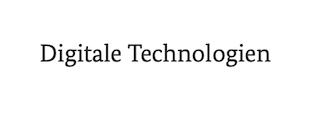CliCE-DiPP
Climate-neutral Circular Economy enabled by Digital Product Carbon Pass
Greenhouse gases are the primary cause of the rapid progression of global climate change. In Germany, as in many countries worldwide, there are regulations aimed at reducing carbon emissions, as exemplified by the Paris Agreement. Industry is one of the biggest sources of carbon emissions, which is why it must substantially reduce its greenhouse gas emissions to achieve climate targets. Given this context, one can expect that in the future, only products with a low product carbon footprint (PCF) will be competitive. It is especially important to ensure that greenhouse gas emissions occurring throughout the entire value chain are made transparent. This includes all expenses, such as those related to transportation. This is the only way to assess and optimise the entire product life cycle.
Creating transparency when it comes to energy consumption and carbon emissions is the primary objective of the CliCE-DiPP project. To this end, a digital product passport will be developed to map the PCF, taking into account the entire value chain and offering companies a valuable reference point for general process optimisation. The data exchange required for this takes place via interfaces such as OPC UA (i.e. via the ‘Unified Architecture’ specification of the ‘Open Platform Communications’ standard). The data is then stored in the asset administration shell, which provides a standardised framework for exchanging and supplying information.
The project is divided into a pilot phase and an application phase: In the initial phase, assistance systems will be tested and validated with the help of demonstrators in learning factories at the scientific institutes. The purpose of these assistance systems is to help employees manage energy-efficient, overall system effectiveness and to enable energy- and resource-efficient shop floor management. The next step brings the application companies involved in the project into the mix, by enabling them to transfer the results of the pilot phase to real application scenarios.
Other contributions from the project consortium include a validated control algorithm for the economic and ecological optimisation of production processes and a concept for integrating the digital CO2 product passport into building information modelling or other planning platforms. This also involves a general increase in energy and resource efficiency in production processes.
The subsequent transfer to the market has already been considered in the scope of the project concept: Application partners from the metalworking industry and the measuring device sector are conducting research as part of the project. However, the aim is to ensure the solution is also transferable to other industries. The digital product passport, enriched with real data based on marketable technologies, offers companies from a variety of industries a solid foundation for targeting their investments in sustainability and more easily providing proof of these efforts to customers or regulatory authorities. The new technology is therefore also seen as an opportunity for the industry to collaborate in business ecosystems, including the implementation of a circular economy.
Consortium:
- ABM-Mess Service GmbH
- Festo SE & Co. KG
- Hof University of Applied Sciences
- Karlsruhe Institute of Technology (KIT) - wbk Institute of Production Science
- Lorenz GmbH & Co. KG
- Protektorwerk Florenz Maisch GmbH & Co. KG
- Software AG
- Technical University of Darmstadt – Institute for Production Management, Technology and Machine Tools (PTW)
- Recommend this page:
- Print view

